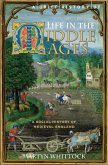"Will always hold an honorable place for bibliophiles." The University of Chicago Press
One of the earliest treatises on the value of preserving neglected manuscripts, building a library, and book collecting, Richard De Bury's The Philobiblon was written in 1345 and circulated widely in manuscript form for over a century. The first printed edition appeared in Cologne in 1473, and several others soon followed as the invention of the printing press spread throughout the late Medieval world. The chapter titles of this legendary work reflect its nature, combining the author's love for and commitment to the importance of books and the knowledge they contain with thoughts on collecting them, lending them, teaching with them, and simply enjoying them: "That the Treasure of Wisdom is chiefly contained in books," "What we are to think of the price in the buying of books," "Who ought to be special lovers of books," and "Of the manner of lending all our books to students." The Prologue ends with the following thought:
"And this treatise (divided into twenty chapters) will clear the love we have had for books from the charge of excess, will expound the purpose of our intense devotion, and will narrate more clearly than light all the circumstances of our undertaking. And because it principally treats of the love of books, we have chose after the fashion of the ancient Romans fondly to name it by a Greek word, Philobiblon."
This volume offers modern bibliophiles a splendid edition of one of the first books ever to study, define, and, above all, praise their passion: the all-encompassing love of books.
One of the earliest treatises on the value of preserving neglected manuscripts, building a library, and book collecting, Richard De Bury's The Philobiblon was written in 1345 and circulated widely in manuscript form for over a century. The first printed edition appeared in Cologne in 1473, and several others soon followed as the invention of the printing press spread throughout the late Medieval world. The chapter titles of this legendary work reflect its nature, combining the author's love for and commitment to the importance of books and the knowledge they contain with thoughts on collecting them, lending them, teaching with them, and simply enjoying them: "That the Treasure of Wisdom is chiefly contained in books," "What we are to think of the price in the buying of books," "Who ought to be special lovers of books," and "Of the manner of lending all our books to students." The Prologue ends with the following thought:
"And this treatise (divided into twenty chapters) will clear the love we have had for books from the charge of excess, will expound the purpose of our intense devotion, and will narrate more clearly than light all the circumstances of our undertaking. And because it principally treats of the love of books, we have chose after the fashion of the ancient Romans fondly to name it by a Greek word, Philobiblon."
This volume offers modern bibliophiles a splendid edition of one of the first books ever to study, define, and, above all, praise their passion: the all-encompassing love of books.
Dieser Download kann aus rechtlichen Gründen nur mit Rechnungsadresse in A, D ausgeliefert werden.









